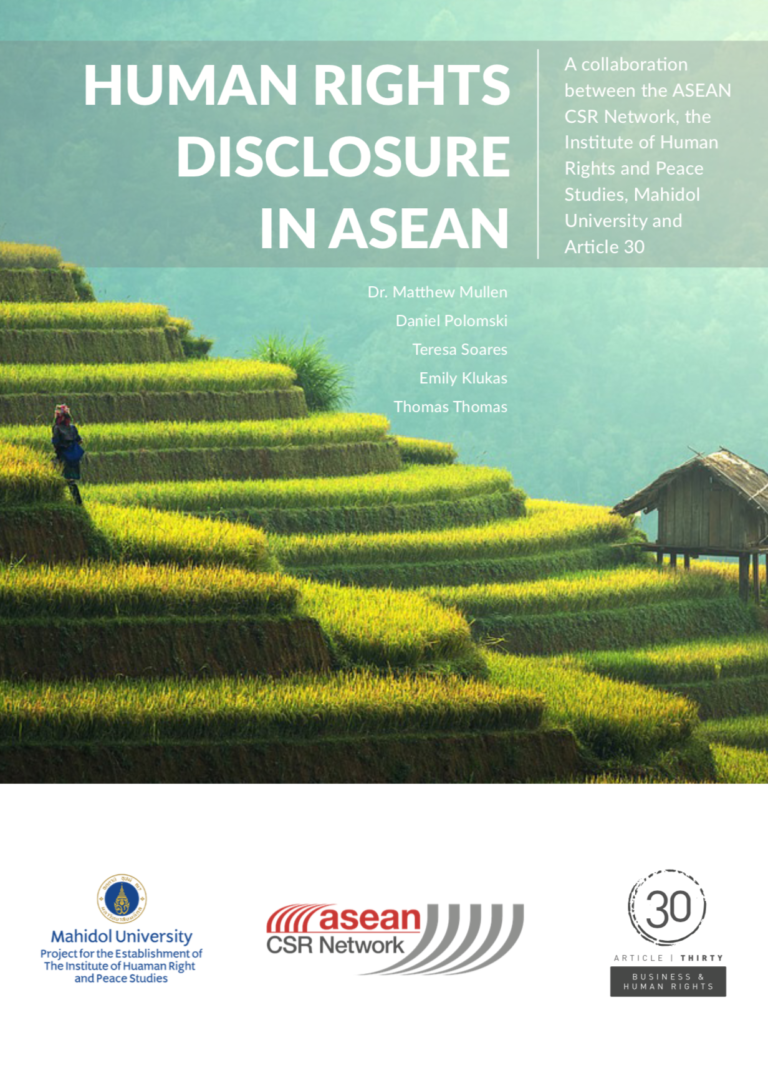At present, human rights disclosure among top-listed companies in ASEAN falls substantially short of the benchmark set by the UNGPs. The lagging human rights disclosure in ASEAN reflects a lack of specific guidelines and oversight from national and regional authorities. It also shows that, as a collective, companies in the region have been marginally responsive to the global business and human rights (BHR) push. This is increasingly noteworthy as the UN Human Rights Council’s Open-Ended Intergovernmental Working Group (IGWG) on transnational corporations and other business enterprises with respect to human rights published the ‘Zero Draft’ of a Business and Human Rights Treaty in July 2018. Such developments indicate a field that is evolving swiftly, even if not linearly, creating a situation where parties can become under or unprepared and non-compliant without realizing it. This study provides a baseline for stakeholders in ASEAN to move forward. By identifying disclosure gaps, offering good examples from the region and highlighting points of leverage such as National Action Plans (NAPs) and stock exchange disclosure regulations, the study aims to inform efforts to align with the UNGPs and prepare ASEAN governments and companies for the possibility of a legally-binding treaty.

